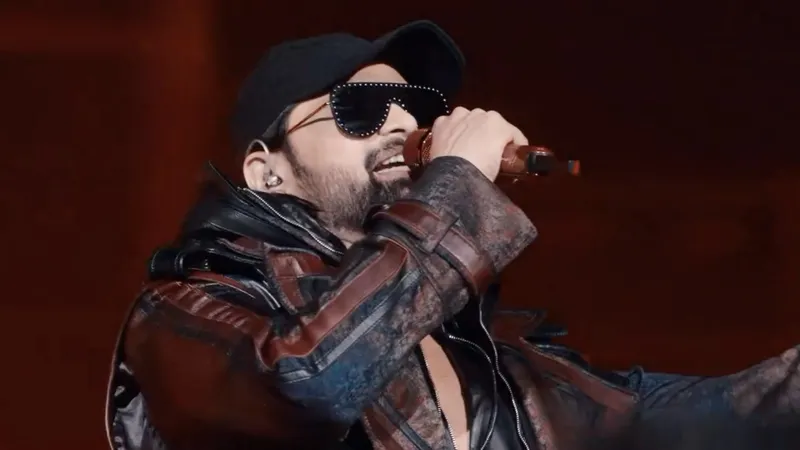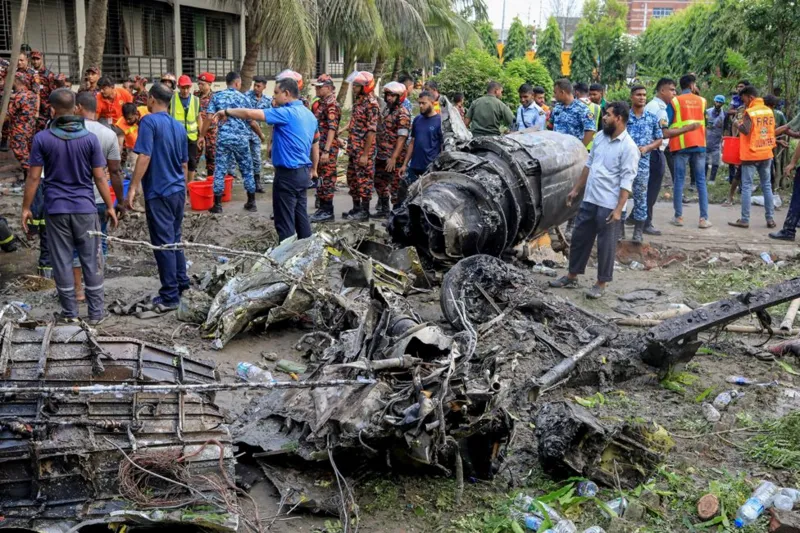UK set to advise against all travel to Israel, Sky News understands
Chancellor Rachel Reeves tells Sunday Morning with Trevor Phillips the UK is increasing its presence in the Middle East is to protect its "important assets" there.

Ethnicity should 'absolutely' be investigated in child grooming gang inquiry - Rochdale MP
With the announcement from the government of a national inquiry into grooming gangs, Sky News spoke to Paul Waugh, the Rochdale MP.
He was asked if ethnicity should be part of the probe, having previously criticised.
"Absolutely," Waugh says.
"No racial group, no councillor, no police officer, no social worker - no one should be immune from the harsh spotlight of transparency on this.
"And I think that that's what I think this inquiry can do. It can find the facts."
Waugh says they want to ensure that "there's no one that can hide from any sense that there's been a cover-up anywhere".
He adds:" We'll hunt them down, we'll make sure they are held accountable.
"I think that's what my constituents want, it's what most of the public want."
UK to advise against all travel to Israel
In the wake of escalating conflict in the Middle East, it looks like the UK is set to update its travel advice.
Sky News understands that the Foreign Office will soon advise against all travel to Israel.
On Friday, the Foreign Office warned against "all but essential travel" to most of Israel.
The areas around Gaza, the West Bank and the Golan Heights were already classed as red zones, with warnings to avoid travel to these areas.
The warning for the remainder of the country is set to be updated to red, it is understood.
This will put Israel on the same level as Iran, and the change of advice might also impact travel insurance.
The fact Israel has closed its airspace means it's unlikely many people would have been making the journey anyway.
Europe owes Israel 'huge thank you' for Iran strikes
Tzipi Hotovely, the Israeli ambassador to the UK, was speaking to the BBC this morning.
She insisted that her nation's strikes against Iran were done in self-defence.
She said: "Europe owes a huge thank you to Israel for doing that, and the Gulf countries as well.
“Our region would have been a place that is not safe for anyone if Iran had accomplished their plan.”
When talking about airstrikes on suspected nuclear sites in Iraq in 1981 and Syria in 2007, Ms Hotovely added: "The international community owes a huge thank you to Israel and it’s the same case here."
Stride claims pressure in parliament forced Starmer U-turn on grooming gangs
Shadow chancellor Mel Stride is speaking to Sunday Morning with Trevor Phillips on behalf of the Conservatives.
In the wake of the prime minster agreeing to a statutory inquiry into grooming gangs, Stride tries to claim it was down to his party.
He talks up the fact his party have tabled amendments in parliament and forced votes.
This is a slightly charitable version of events, with the PM saying a review carried out by Baroness Casey that he read cover to cover is what changed his mind.
Asked why the Conservative didn't launch a statutory inquiry into grooming gangs, Stride says his party set up a grooming gang task force and pursued 550 perpetrators.
He also points to the Jay review - although this was about child sexual abuse in general, like in the Catholic Church, rather than focusing on grooming gangs.
Israeli attack 'puts paid' to any talk of Iranian nuclear deal
Before the escalation in recent days, Donald Trump had been trying to get a new deal done with Iran over its nuclear programme.
Former foreign secretary Philip Hammond says he does not see that being possible in the wake of Israel's strikes.
He says that when he was negotiating the previous deal in 2015 (which Trump scrapped in his first term), Israel opposed it.
Lord Hammond says the Israelis "are standing in the way of a new deal".
He adds that the position Tehran is now in makes it "virtually impossible" for a deal to be done - as the credibility of the regime "would be shot".
The former foreign secretary says the Iranian regime has "many different factions" and "focuses of power", which also doesn't help.
"The Israeli pre-emptive attack has effectively put paid, at least for now, to any prospect of a deal to halt Iran's nuclear weapons program," he says.
Keeping options open
Asked about the UK deploying assets to the Middle East, Lord Hammond says Britain has in the past helped defend Israel.
He says the UK does have things like Type 45 air defence systems that could help defend Israel.
However, he says it seems that the UK trying to "ensure that we have options available to us without committing to doing anything".
Oil prices a worry if they stay high
The former chancellor is asked about his thoughts on spiking oil prices.
One model from Deutsche Bank suggests Iran closing the Strait of Hormuz could put oil to a price of $125 per barrel.
Lord Hammond says Rachel Reeves should have ensured greater headroom in the budget, but has failed to do so.
Maybe channelling his former time as a minister, Lord Hammond looks to calm people - and markets.
He says "I don't think we should get too excited by a short term spike in oil prices" - but a long term one would be more tricky.
Is chancellor blaming the Treasury for winter fuel fiasco?
Last week, the government confirmed it was U-turning on the winter fuel payment cut - one of the administration's most unpopular decisions.
The government now claims the finances are in a good enough state to spend more than a billion expanding eligibility.
Asked if the pain of the U-turn was worth it, Chancellor Rachel Reeves says: "When I became chancellor last year, I faced a £22bn black hole in the public finances.
"Over £6bn of that was undisclosed asylum costs, and we had to get a grip of the situation.
"I was told when I became chancellor that, if we tried to issue those additional government bonds, the cost of borrowing would increase."
Asked if this meant a potential run on the pound - something Reeves has been mocked for claiming previously - the chancellor says: "There were the very serious concerns at the Treasury and the debt management office about the level of our borrowing and the additional borrowing that hadn't been disclosed to financial markets."
She then indicates the situation is not better now because the government has more money, but because it is clearer where the existing money is going.
This might help the arguments of those who suggested the decision to cut winter fuel originated in the Treasury.
Some might say the chancellor is trying to point the blame that way with her answer - others would say she is explaining her previous decisions.
'Hurt feelings' of those Labour insulted when asking for grooming inquiry 'not important'
Sunday Morning with Trevor Phillips now pivots to the announcement last night of a nationwide statutory inquiry into grooming gangs.
This comes despite the PM, home secretary and others saying earlier this year that one would not be necessary.
And the prime minister ended up in a row with businessman Elon Musk and the likes of Tommy Robinson for not calling one.
The reason for the change in stance is the PM having read the review into the gangs carried out by Baroness Casey - something that is set to be published next week.
Asked what was new in the report, Chancellor Rachel Reeves said that, having read the report, the prime minister saw the need for an inquiry with the power to compel witnesses to attend.
Trevor asks the chancellor if there will be an apology for those "more or less accused of racism for raising this issue".
The chancellor replies that the "most important thing" is the victims, and "it's not people's hurt feelings about how they have been spoken about".
UK 'not at war', minister confirms - as door left open for Britain to help Israel defend against Iran
In the past 24 hours, the prime minister confirmed UK assets, including jets, had been sent to the Middle East in response to the escalation in the conflict between Israel and Iran.
Speaking to Sunday Morning with Trevor Phillips, Chancellor Rachel Reeves says: "It does not mean that we are at war. And we have not been involved in these strikes or this conflict."
Reeves repeatedly urges de-escalation in the conflict, and says the PM is at the G7 meeting where ramping down tensions will be "front and centre".
However, she says the purpose of the UK increasing its presence in the Middle East is to protect its "important assets" there.
She says the UK hasn't this time been involved in shooting down weapons launched from Iran at Israel, as has previously been the case.
Trevor asks Reeves if the UK could get involved in the future, to which the minister says she is "not going to rule anything out at this stage".
'No time for the Iranian regime'
Asked if she, like the Israelis, wants to see a regime change in Tehran, the chancellor says she has "no time for the Iranian regime, for the suppression of, the repression of, their own people" - before reiterating her desire for de-escalation.
Reeves says Foreign Secretary David Lammy has spoken to his Iranian counterparts since the escalation of the conflict.
She goes on to say that the UK is not trying to "ramp up the rhetoric".
Oil price warnings
As ever, when things get more volatile in the Middle East, oil prices start to spike.
The chancellor says this is already happening and will have "consequences for people here in the UK".
She points out prices have gone up by just over 10% - although they are still lower than they were a few months ago.
Trevor asks about the Strait of Hormuz - the waterway between Iran and the Arabian peninsular that leads to Kuwait and is vital for global energy supplies.
Reeves says the government is keeping "an eye" on the situation and whether Iran could close the passage.
Asked how worried she is, the chancellor says situations like this are why it's important for the UK to develop domestic energy through things such as small nuclear reactors and renewables.
Sunday Morning with Trevor Phillips is live
Watch along at the top of the page, or follow live updates here.
We'll be hearing from Chancellor Rachel Reeves, shadow chancellor Mel Stride, and former chancellor and Foreign Secretary Lord Philip Hammond.
And our panel consists of former defence secretary Dame Penny Mordaunt, foreign affairs select committee chair Dame Emily Thornberry, and journalist Mark Urban.
Why many victims will welcome a national inquiry into grooming gangs
In 2019, nine men were jailed for raping and abusing two teenage girls living in a children's home in Bradford.
One of the victims, Fiona Goddard, says more than 50 men raped her.
When the government began to talk about offering councils money for local inquiries, Fiona hoped Bradford would be one of the first to take up the offer. But there didn't seem to be much enthusiasm.
The council was quick to point out that there had already been an independent case review into Fiona's case, along with four other victims.
This, then, was Fiona's first reasoning for wanting a national inquiry: The council felt it had done all that needed to be done. Fiona didn't.
A scrambled G7 agenda as world leaders race to de-escalate the Israel-Iran conflict
The return on Donald Trump to the G7 was always going to be unpredictable. That it is happening against the backdrop of an escalating conflict in the Middle East makes it even more so, writes political editor Beth Rigby.
Expectations had already been low, with the Canadian hosts cautioning against the normal joint communique at the end of the summit, mindful that this group of leaders would struggle to find consensus.
Canadian Prime Minister Mark Carney carefully laid down an agenda that was uncontroversial in a bid to avoid any blow-ups between President Trump and allies, who of late have been divided like never before - be it over tariffs and trade, Russia and Ukraine, or, more recently Israel's conduct in Gaza.
But discussions around critical minerals and global supply chains will undoubtedly drop down the agenda as leaders convene at a precarious moment.
Keir Starmer, on his way over to Canada for a bi-lateral meeting in Ottawa with PM Carney before travelling onto the G7 summit in Kananaskis, underscored the gravity of the situation as he again spoke of de-escalation, while also confirmed that the UK was deploying more British fighter jets to the region amid threats from Tehran that it will attack UK bases if London helps defend Israel against airstrikes.
Really this is a G7 agenda scrambled as world leaders race to de-escalate the worst fighting between Tel Aviv and Tehran in decades.
Grooming gang national inquiry announced by Sir Keir Starmer
Sir Keir Starmer is to launch a new national inquiry into grooming gangs.
It comes after a government-requested audit into the scale of grooming gangs across the country concluded a nationwide probe was necessary.
The prime minister previously argued a national inquiry was not necessary, but has changed his view following an audit into group-based child sexual abuse led by Baroness Casey, which is set to be published next week.
"[Baroness Casey's] position when she started the audit was that there was not a real need for a national inquiry over and above what was going on," he told reporters travelling with him to the G7 summit in Canada.
"She has looked at the material... and she has come to the view that there should be a national inquiry on the basis of what she has seen.
"I have read every single word of her report, and I am going to accept her recommendation. That is the right thing to do on the basis of what she has put in her audit.
"I asked her to do that job to double check on this; she has done that job for me, and having read her report... I shall now implement her recommendations."
-SKY NEWS







